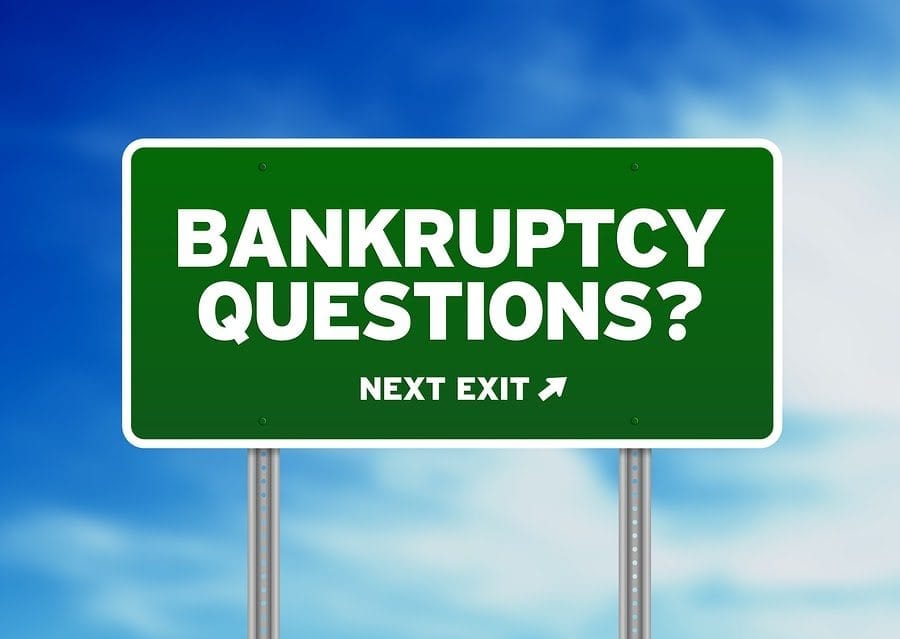Chapter 7 is the most popular bankruptcy option among Pennsylvania residents. The Chapter 7 bankruptcy process tries to compensate creditors using proceeds derived from liquidation of the debtor’s assets, while the debtor benefits from discharge, or cancellation, of various debts. Though Chapter 7 is built around liquidation, various bankruptcy exemptions may prevent the liquidation of certain assets. Philadelphia bankruptcy attorneys discuss the process of liquidation bankruptcy in Pennsylvania, and how state or federal exemptions can be used to protect cherished or valuable assets.
How Does Liquidation Work in Chapter 7?
Chapter 7 is sometimes described as a “liquidation bankruptcy,” or simply “liquidation.” To quote the federal judiciary’s description of the Chapter 7 bankruptcy process, “When a [C]hapter 7 petition is filed, the U.S. trustee… appoints an impartial case trustee to administer the case and liquidate the debtor’s nonexempt assets.”
These are terms many debtors are unfamiliar with, which often creates some initial confusion about the Chapter 7 bankruptcy process in Pennsylvania. Let’s break down the quote excerpted above, piece by piece, to shed more light on liquidation in Chapter 7.
- “When a Chapter 7 petition is filed…”
The “petition” is the chief document that formally initiates bankruptcy proceedings. - “…the U.S. trustee… appoints an impartial case trustee to administer the case…”
A neutral person (the “case trustee”) is assigned to manage and oversee (“administer”) financial aspects of your case. - “…and liquidate the debtor’s nonexempt assets.”
The “debtor” is you: the person filing bankruptcy. To “liquidate” simply means to sell: to turn assets into money. Your “assets” are your valuable properties or belongings. Assets can be tangible, like cars and pieces of jewelry, or intangible, such as pension plans. Assets are “nonexempt” if they are not covered and protected by bankruptcy exemptions, which are explained in the following sections.
When you put all of these terms together, it means the trustee can sell your belongings – unless they are covered by bankruptcy exemptions.
Federal Bankruptcy Exemptions in Chapter 7
Most bankruptcy laws are rooted in the U.S. Bankruptcy Code, which means they are consistently applied throughout the United States. For example, all debtors are required to complete compulsory credit counseling and debtor education classes, regardless of whether they live in Pennsylvania, New Jersey, or any other state.
Bankruptcy exemptions are one notable exception where the laws do vary from state to state. Some states allow debtors to select between state and federal exemption options, while other states require all debtors to use the state’s exemptions exclusively.
Pennsylvania debtors are fortunate in that state law permits a choice between Pennsylvania exemptions and federal exemptions. This provides much-needed flexibility for debtors. For some debtors, the federal exemptions are the best option. For others, using state exemptions is the superior strategy. Choosing wisely is crucial, as debtors must use one set or the other without mixing and matching. Our Philadelphia Chapter 7 lawyers can help you make the decision that’s smartest for your financial goals.
Bankruptcy exemptions are continually adjusted by the federal government. The exemptions listed below were last changed in 2016, and are scheduled for another update in 2019.
Some exemptions cover the specified asset in full, regardless of its dollar value. In these cases, no dollar limit is indicated.
Other exemptions have specific thresholds, which are indicated where applicable. In such cases, the asset’s value must be equal to or lower than the value specified for the exemption to apply.
Below, our Delaware County Chapter 7 attorneys have provided some examples of some important federal bankruptcy exemptions, including the federal motor vehicle exemption and the federal homestead exemption. Be advised this is not an exhaustive list.
- Federal 401k Exemption
- Federal Disability Benefits Exemption
- Federal Health Aids Exemption
- Federal Homestead Exemption — $23,675
- Federal IRA Exemption — $1,283,025
- Federal Jewelry Exemption — $1,600
- Federal Life Insurance Policy Exemption — Covered except credit insurance if unmatured, otherwise covered with maximum loan value of $12,625
- Federal Motor Vehicle Exemption — $3,775
- Federal Personal Injury Recovery Exemption — $23,675
- Federal Tools of the Trade Exemption — $2,375
- Federal Wildcard Exemption — $1,250
- Federal Wrongful Death Recovery Exemption — Covered if you were the decedent’s dependent
- Other Federal Exemptions
- $600 per item, or $12,625 total, for clothing, appliances, furnishings, instruments, books, and household goods
Note that married couples may double these exemptions if filing jointly for Chapter 7 in Pennsylvania. For example, the car exemption would double from $3,775 to $7,550.
Pennsylvania Bankruptcy Exemptions in Chapter 7
Some important examples of Pennsylvania Chapter 7 bankruptcy exemptions are listed below. As you can see from the list, Pennsylvania generally does not offer equivalent alternatives to the federal exemptions.
- Pennsylvania Homestead Exemption — None, with some exceptions for married couples
- Pennsylvania IRA Exemption — $1,283,025
- Pennsylvania Jewelry Exemption — None
- Pennsylvania Life Insurance Policy Exemption — Life insurance policies may be covered in cases where policies specify that proceeds may not be used for paying creditors
- Pennsylvania Motor Vehicle Exemption — None
- Pennsylvania Wildcard Exemption — $300
- Other Pennsylvania Exemptions
- Complete coverage for sewing machines, books, clothing, and uniforms
Philadelphia Chapter 7 Bankruptcy Lawyers Can Help Protect Your Property
In most areas, the federal exemptions are more generous than the Pennsylvania exemptions. Nonetheless, there are some instances where the Pennsylvania bankruptcy exemptions make more financial sense for the debtor.
Regardless of whether you ultimately use the federal bankruptcy exemptions or the Pennsylvania bankruptcy exemptions, having skilled legal representation is essential for maximizing the amount of property you can keep. Make sure you take steps to protect as much of your property from liquidation as possible, while still getting the benefits of debt relief. For a free legal consultation, call the West Chester Chapter 7 lawyers of Sadek Bankruptcy Law Offices, LLC at (215)-545-0008 today.







